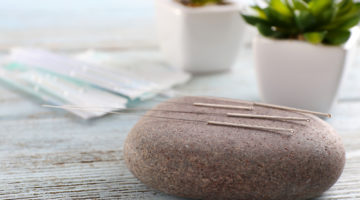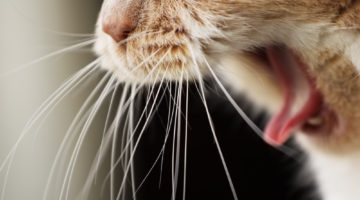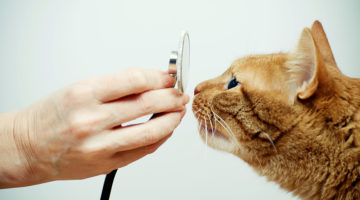These natural remedies can effectively treat a variety of common feline health problems, with minimal risk of side effects.
Cats are sensitive creatures and susceptible to a variety of health conditions. While conventional medications are effective, they may come with unpleasant side effects and high price tags. Cat lovers looking for alternative options might consider Western herbs. But with so many different herbs available, it can be confusing to know which ones are effective for a specific condition. Here are a few options for some of the most common kitty complaints.
1. Saw palmetto for urinary blockage
You know how frustrating litter box issues can be. Male cats are especially prone to urinary obstruction, commonly known as being “blocked”. This condition is an emergency, so prevention is important. It can be done with dietary modification and saw palmetto berry (Serenoa repens).
Studies have demonstrated saw palmetto’s diuretic, urinary antiseptic and urethral anti-spasmodic properties. Cats with a history of urinary blockage can safely take this herb long term, and there are few reports of side effects. Saw palmetto is also helpful for urinary tract infection and cystitis, because it has anti-inflammatory effects on the bladder.
2. Hawthorne for the heart
Feline heart disease is difficult to observe, because cats frequently show no visible signs of illness. When it is finally found, it may already be advanced with severe heart damage. Hawthorne (Crataegus laevigata) can be helpful in improving heart muscle function through a variety of actions.
Hawthorne acts directly on the heart muscle to decrease arrhythmias and increase contraction. It also causes vasodilation, both peripherally and within the coronary arteries. This relaxes the vessels and allows the blood to flow more easily, thus decreasing the amount of work the heart has to do.
While hawthorne offers many potential positive benefits, it should not be used lightly. It could potentially interact with many commonly used cardiac medications, such as digitalis and beta-blockers. If your cat is already on medications, consult with your veterinarian or veterinary cardiologist before using hawthorne.
3. Ginkgo for cognition
Cats are living longer than ever before and are experiencing many of the problems that come with advanced age. Many people are looking for ways to keep their cats young, both in body and mind. Ginkgo (Ginkgo biloba) has been used for human dementia patients and can be just as helpful for old kitties that don’t seem “with it” anymore. In humans, ginkgo has been shown to improve cognition during everyday tasks, and to improve mood.
This may be due to the herb’s effects on the brain’s blood flow. Ginkgo increases peripheral circulation and blood flow in the brain and protects the brain from oxidative damage. These circulatory effects make ginkgo potentially useful for other disorders, such as stroke, retinal diseases involving the blood vessels, and asthma.
Ginkgo is generally extremely safe to give for long periods, but it should be used cautiously with cats that are taking anti-coagulant medications. The combination may increase the risk of bleeding.
4. Dandelion for tummy trouble
Constipation can be a frustrating chronic issue in cats. Conventional treatments utilize medications to lubricate the colon or increase muscular contractions, but they can result in diarrhea or uncomfortable cramping. Dandelion (Taraxacum officinale) acts as a laxative while addressing the underlying problem of poor digestion.
Dandelion has been shown to increase the function of both the liver and gallbladder. Both organs are vital for proper digestion. This in turn allows the intestines to metabolize food more efficiently and produce less waste. Thanks to dandelion’s laxative qualities, constipation can be successfully managed with little concern for side effects or interaction with other medications.
5. Marshmallow, the all-round herb
Marshmallow (Althaea officinalis) has demulcent properties, which means it can soothe and restore mucus membranes. It contains mucilage, a sticky polysaccharide that coats mucus membranes. This creates a barrier, like a Band-Aid, to allow these delicate tissues to heal or protect them from further harm.
Mucus membranes are present throughout the body, so this herb has many potential uses for our feline friends. Respiratory problems such as chronic bronchitis, gastrointestinal disorders like inflammatory bowel disease, or stomatitis (painful swelling of gums) can be eased with marshmallow. Urinary problems, including cystitis and stones, may also respond to marshmallow.
Another advantage of this herb is its safety and neutral flavor. Marshmallow can be used long term with no side effects or interactions with other substances. Administering many herbs to cats can be difficult because of their strong odor, but marshmallow is very mild, and even the most discerning feline will accept dried extract when mixed with canned food.
Sooner or later, you’ll likely have to deal with at least one of these ailments in your feline friend. If you’re looking for an alternative to drugs, give these herbs a try. Whether used alone, or in some cases in combination with conventional medicines, under the supervision of your vet, you will see how effective these native plant species can be for treating your kitty’s condition.
Safety Tips
These herbs have been around for a long time, and most are extremely safe when used properly. As with anything you give your cat, though, be sure to always consult with your veterinarian first. While rare, some herbs will interfere or react negatively with medications and other treatments. If you are interested in learning more about using Western herbs for your cat, a wonderful resource is Veterinary Herbal Medicine by Drs. Wynn and Fougère.







No Comment